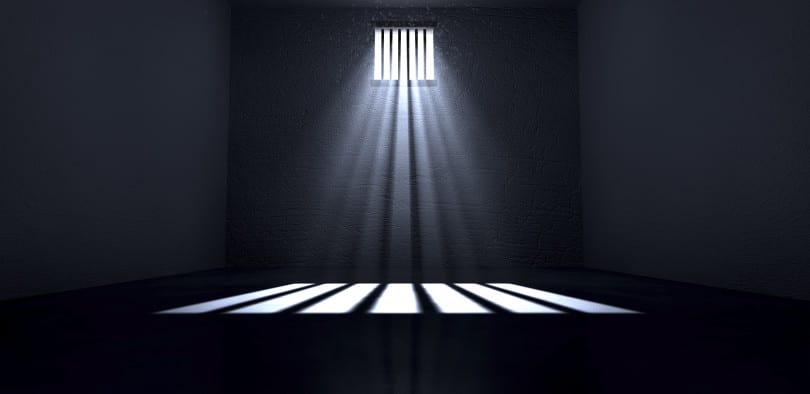By: Carol R. Ray, Ph.D.
The jails and prison systems are the de facto mental health institution (Abramsky and Fellner, 2003). There is a prison within the prison, that those with mental health conditions, are subjected to. That is the practice of “solitary confinement”. Solitary confinement is defined as, isolation from personal interaction with others, in addition to being locked and confined in cells for 23 to 24 hours a day (Metzner and Fellner, 2010). Additionally, solitary confinement involves being, segregated with little if any educational and vocational activities.
Many prison officers resort to solitary confinement as a means to deal with difficult or dangerous inmates. Many inmates, with a mental illness, are put into solitary confinement or isolation, more often, due to their inability to follow jail or prison rules, because of their mental illness. Often times, these inmates, are in there for years. Solitary confinement often makes their mental illness symptoms worse. Thereby, giving rise to recurrence (Abramsky and Fellner, 2003). It has been reported that the psychological effects of solitary confinement are equivalent to physical torture (Metzner and Fellner, 2010). Some of its effects on those particularly with a mental illness include, anxiety, depression, anger, cognitive disturbances, perceptual distortions, obsessive thoughts, paranoia, and psychosis (Smith, 2006).Additionally, more suicides occur in solitary confinement than elsewhere in prison (Patterson, Hughes, 2008).Oftentimes, many mentally ill inmates deteriorate while in isolation, thereby, requiring hospitalization (Metzner and Fellner, 2010). Many just do not get better while in isolation or solitary confinement (Metzner and Fellner, 2010).
Jails and prisons are unable to provide the proper care for those who have a mental illness. After all, they are not a hospital. They are only equipped to ensure safety of its inmates and staff. While in solitary confinement, inmates who have a mental illness, only receive minimal psychiatric care. Their care is limited to receiving medicine, a clinician making mental health rounds, and occasional meetings with a mental health clinician (Abramsky and Fellner, 2003).Absent of care are individual and group therapy, life-skill enhancing activities, and other therapeutic interventions. This is due to insufficient resources and regulations requiring inmates to stay in their cells (Metzner and Dvoskin, 2006).
The use of solitary confinement to house the mentally ill has grown, as the population of inmates with mental illness has grown (Metzner and Fellner, 2010). The total population of inmates held in solitary confinement on a given day, in all U.S. prisons, jails, juvenile facilities, and immigrant detention centers likely exceeds 100,000 (Metzner and Fellner, 2010).
While I was in jail, due to a mental crisis, I was on suicide watch, which was basically, solitary confinement. This was the worst thing, the jail staff could have done. I was in this cell for six days without my medicine. I went downhill fast. I had recurring hallucinations. Upon admittance into the hospital, which was about 1.5 to 2 hours away from where I was living, I was unable to walk, talk or feed myself. It took six weeks for me to recover. I firmly believe, if I were not in solitary confinement, I would have recovered sooner.
Physicians, within jails and prisons, should advocate to change solitary confinement policies (Metzner and Fellner, 2010). If this is not successful, the physician’s professional healthcare organizations, should recognize that solitary confinement of inmates with a mental illness, violates the basic principles of mental health treatment (World Medical Association, 2010).
REFERENCES
1. Abramsky S, Fellner J: Ill-equipped: US prisons and offenders with mental illness. Human Rights Watch, 2003, 145-168.
2. Metzner JL, Dvoskin JA: An overview of correctional psychiatry. Psychiatric Clinics of North America 29:761–72, 2006.
3. Metzner, J, Fellner, J: Solitary confinement and mental illness in u.s. prisons: a challenge for medical ethics. Journal of American Academy of Psychiatry and the Law 38:104-108,2010.
4. Patterson RF, Hughes K: Review of completed suicides in the California Department of Corrections and Rehabilitation, 1999 to 2004. Psychiatric Services 59:677-81, 2008.
5. Smith PS: The effects of solitary confinement on prison inmates: a brief history and review of the literature. Criminal Justice 34:441-568, 2006.
6. World Medical Association: Declaration concerning support for medical doctors refusing to participate in, or to condone, the use of torture or other forms of cruel, inhuman or degrading treatment. Adopted by the 49th WMA Assembly. Hamburg, Germany, November 1997. Available at http://www.wma.net/en/30publications/10policies/c19/index.html. Accessed January 29, 2010.


